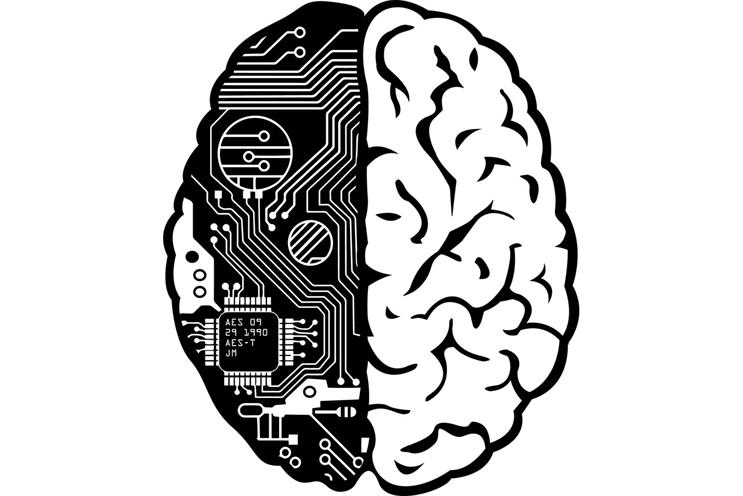The world is changing before our eyes.
There is increasing speculation that customer service and possibly whole marketing functions could be replaced with bots. Artificial intelligence is already used in the insurance quotation process to assist consumers in tailoring their policy.
On top of that, blockchain (essentially a tamper-proof way to store and share personal data) could fundamentally change how customer relationships are managed. For example, imagine if a lifetime of driving data was held as a blockchain to demonstrate a driver’s risk, superseding the quotation process altogether: it could help beat fraud and change the face of the insurance industry.
It is obvious to see how bots and AI could make life much easier for consumers by eliminating the mundane and facilitating enjoyment and fulfilment. They can also streamline complex operations for organisations, massively improving efficiency and accuracy. Machine-learning is already prevalent within actuary circles for exactly that reason. To put this in context, it is estimated that, by 2029, "sentience" – whereby a single neural networked computer will become as intelligent as a single human brain – will happen. By 2049, a single neural networked computer could become more intelligent than all the human brains on the planet put together, according to PHD head of planning Michael Florence at the 2015 ISBA conference.
One consequence of technological advances is that consumers are becoming more demanding of the services they use. Pay-as-you-go and bespoke subscription models are becoming more popular, peer-to-peer financial technology is more mainstream than ever and it seems inevitable that the insurance model will evolve in the coming years.
But what will these technologies mean to marketers in practice? Some professions that are predicated on repeatable precision, such as accountancy, could arguably disappear. In contrast, marketing is based on the subtleties of creativity, human needs and emotion. Indeed, while the appearances of marketing have changed in the digital age, the fundamentals have not. Marketing 101 will always entail finding out what consumers really want and need, challenging the organisation to deliver that need and then telling consumers that their need has now been met better than before.
When you remind yourself of this, it is liberating in that technology merely helps marketers to be better at these processes. First, the process of insight gathering is supercharged through big data and neuroscience – never before have you been able to know so much about exactly what consumers want. Second, technology is enabling organisations to adapt their propositions to better meet those needs. At Direct Line, the "Amazonification" of our supply chain has enabled us to do things in seconds and minutes that previously took hours and days. Third, the modern tools of digital marketing mean mass personalised communication is fast becoming a reality.
There is a cautionary tale, however. Although it is tempting to be an early adopter of technology such as blockchain and Bitcoin in order to appear innovative, it’s important not to forget that these are merely means to an end rather than an end in themselves. What is more important is to use them as amplifiers and accelerants to service the ultimate brand promise. Many consumers are afraid of what such advances mean for their personal privacy, so these technologies should not be used frivolously.
Crucially, marketers need to be ready to communicate lucidly with their audiences when the day comes that blockchain is truly mainstream. Just how daunting it is to consumers has yet to be seen. It’s up to marketers to reassure consumers that, despite recent data breaches and privacy debates, data exchange can provide significant utility. For insurance customers, an obvious example is that it can help make processing complaints and issues quicker.
More generally, I believe that successful brands will achieve a balance between humanity and technology. The Internet of Things will potentially change the face of insurance as we know it through both driverless cars and connected homes. The role of technologically innovative practices in marketing will only become more central in an ever-changing and more mobile world. Take bots – staying abreast of different issues and campaigns has become a huge task but, by deploying bots, marketers can help deal with customer queries by queuing content and tracking key words. Consumers demand "always-on" responses from their providers, and bots can often solve problems without the need for human intervention. Nonetheless, at Direct Line, we firmly believe that nothing can replace interaction with a human. So while bots doubtless have their place in carrying out simpler tasks, real people are indispensable to delivering the best possible customer experience.
Bill Gates said that we overestimate the change that will occur in the next two years but underestimate the change that will occur in the next ten – and I think this is true for technology. In the next few years, I believe we will see a continuous improvement in marketing’s efficacy in the use of things such as bots and AI. Direct Line has a duty to future-proof its ways of working – not least for its customers’ benefit – in an ever-changing Britain.
Insurers have traditionally been reluctant to adopt new approaches, which is understandable in a sector all about minimising risk. But, looking further ahead, there probably isn’t any business model in the world that won’t be disrupted: marketing needs to keep up.
Mark Evans is marketing director of Direct Line Group


